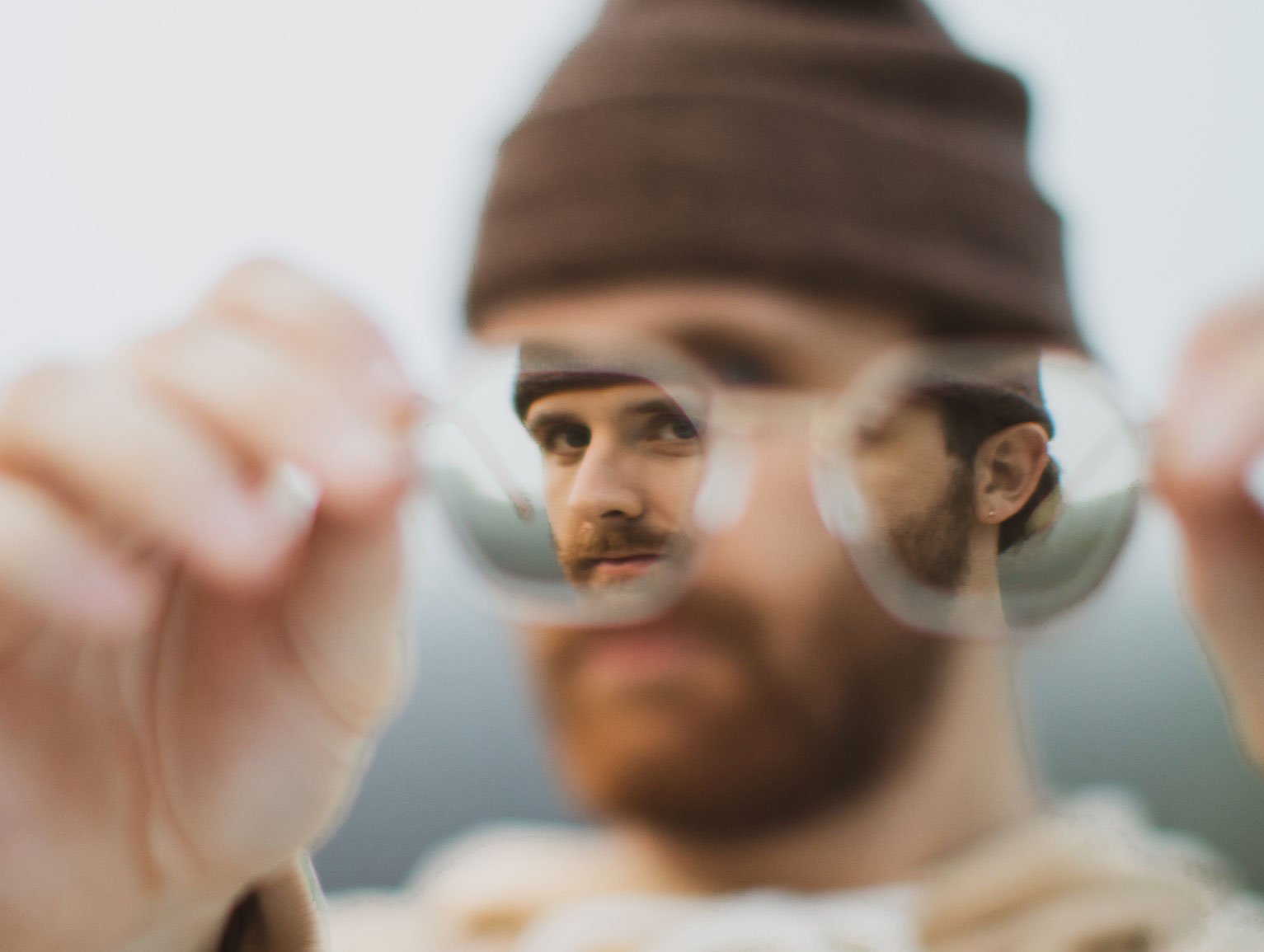Jacob Humber, an interview
Jacob Humber has landed in our stack of submissions with his new album, Kodiak, and the entire thing is an absolute masterpiece. In his bio, we noticed that his father took him up to the Alaskan wilderness of Kodiak, knowing that he would stare death in the eye. Of course, we needed an explanation, so we tracked him down and his answer reads more like the preface to a book, so what better way to begin than with the beginning:
Jacob Humber: The populace of the island of Kodiak, AK consists of the town of Kodiak (population of around 6,000 people), seven indigenous tribes scattered throughout the island, and about 4,000 Kodiak Grizzly Bears. These bears are the largest land predators on Earth due to the isolated environment with running salmon streams stretching throughout the island.
With nearly as many bears as people on the island, one must stay mindful of their surroundings at all times. When walking from parking areas to river fronts in Kodiak, you’ll walk past dozens of CAUTION: BEAR signs. The chances of encountering a Kodiak bear here may as well be the flip of a coin.
Over the years and the four trips I’ve taken here with my dad, we’ve had somewhere around ten interactions with bears who want the fish we’ve caught. He and I are both still here, the only difference is that I’ve soiled my clothes a number of times while he’s filling up his phone’s video library with the close encounters.
UpToHear: My spirit animal is a bear (I don’t care if you believe in that or not), but I had this strange notion that I was going to like your music before I even heard it. Is naming this album Kodiak a means of taking your power back or being one with your fears?
JH: Love that - definitely lean toward being one with fear on naming the record Kodiak.
UTH: How long did it take you to write the album?
JH: I started writing songs in December of 2017, so just about five years. As this was my first project, I needed there to be room for discovery built into the whole process for me. I didn’t grow up around music industry folk, so learning how to take audible art I’d made in quiet moments of my life figuring out how to deal with shit from my past and package it into something deliverable for other people was a tall order.
UTH: It is well worth the five years it took. Did you find it cathartic?
JH: I find the process of writing songs to be most cathartic, and I’m learning to develop the taste necessary to find catharsis in weaving together a greater narrative out of smaller, individual pieces of art.
UTH: What did you set out to accomplish when you wrote the first track?
JH: “Batch Brew” was the first track I wrote on the record. I was trying to capture the somberness I’d been conversing with as I watched a relationship I was in ending. It was extra heavy because this person and I wanted to be together, but an undiagnosed mental disorder was really beating up on them and making it impossible for them to show up as their whole self.
UTH: That is actually a fairly common theme in some of the music that is sent to us, but you’ve managed to lay it all out in way that has proven to be very successful. You initially sent us “Stick Around,” which everyone here immediately fell in love with. Did you send it because it is a single or were you just trying to trick us into playing the rest of the record? Because that is pretty sneaky.
JH: Hah! The placement of “Stick Around” at the top of the project was intentional - it seems to have somewhat of an introductory effect that invites the listener to explore what comes next.
UTH: It works very well in that sense, but it is also an incredible listen. Of all the songs on the record, “Afterlife” has the most streams on Spotify. What is it about the track that has earned it more listeners?
JH: I’m not really sure. I think there’s something to be said about an anthemic chorus that advocates for those who have been treated poorly by members of religious communities. It seems to be a common theme, no matter where I’m meeting folks.
UTH: Each track is very well written, performed, and produced. Is it all you or do you have a band? Studio personnel? Do you play live (solo or full band)?
JH: Thank you! I had a whole lot of help from several different writers who I polished and re-wrote songs with, and Julian Dente (producer in Nashville) produced the record and played most of the record’s instrumentation. I’ve played with a full band before, but I prefer to tour either solo or with a drummer.
UTH: Which is your least favorite song to play live? And which is your favorite?
JH: Interesting, I don’t know that I have a least favorite song to play live. The only times I’m playing a song I’m not loving is when I didn’t read the room quite right. I’ve been trying to build my setlists intuitively during the opener’s sets lately, listening for what kind of experience would best suit the group of people I’m spending that evening with.
That said, I do have a favorite song I incorporate into most live sets called “Kansas,” which will be coming out next year.
While we are all waiting for “Kansas,” you can check out Kodiak in its entirety wherever you get your music. Be sure to carve out about 38 minutes of your life, because you need to hear the whole thing, all at once.
-TM

